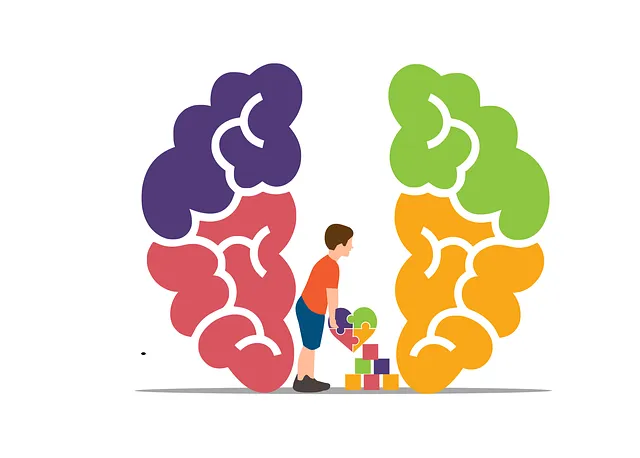In Colorado Springs, Kaiser Permanente addresses a growing need for mental health services by focusing on community outreach. They identify gaps in coverage, especially among underserved populations, through strategic programs like mental wellness journaling exercises and depression prevention events. Their successful collaborations with local orgs expand access and cultural sensitivity. By setting clear objectives, assessing local needs, and implementing tailored initiatives (mindfulness workshops, mood management groups), Kaiser Permanente enhances mental health literacy and resilience while ensuring effective outreach and improved outcomes in Colorado Springs.
In Colorado Springs, access to quality mental health services has been a growing concern. This article explores how community outreach programs can bridge the gap, focusing on strategies employed by organizations like Kaiser Permanente. We delve into understanding local needs, Kaiser’s role in expanding mental health coverage, and effective outreach methods to engage at-risk communities. Additionally, we provide a step-by-step guide for implementing and evaluating successful community programs, highlighting ways to improve mental healthcare accessibility in Colorado Springs.
- Understanding Community Needs: Identifying Gaps in Mental Health Services in Colorado Springs
- Kaiser Permanente's Role: Expanding Access to Mental Health Coverage
- Developing Effective Outreach Strategies: Engaging at-Risk Communities
- Implementing and Evaluating Success: A Step-by-Step Guide for Community Programs
Understanding Community Needs: Identifying Gaps in Mental Health Services in Colorado Springs

In Colorado Springs, understanding the community’s needs is a pivotal step in implementing effective outreach programs. The city has witnessed a growing demand for mental health services, yet gaps remain, especially among underserved populations. According to recent studies, Kaiser Permanente in Colorado Springs has observed an increase in patients seeking mental health coverage, highlighting the urgency of addressing this critical aspect of community well-being. Identifying these gaps is essential to designing relevant mental health education programs and initiatives that cater to the unique challenges faced by different demographics.
One such challenge is promoting positive thinking and mental wellness through accessible channels. Incorporating simple yet powerful tools like mental wellness journaling exercises can be a game-changer in community outreach. This strategy enables individuals to take charge of their mental health, fostering self-awareness and resilience. By combining these practices with tailored guidance, the community can work towards improving overall mental health literacy and accessibility to services.
Kaiser Permanente's Role: Expanding Access to Mental Health Coverage

In Colorado Springs, Kaiser Permanente has been at the forefront of expanding access to mental health coverage, addressing a critical need in the community. Their outreach programs focus on breaking down barriers and reducing the stigma surrounding mental wellness. Through various initiatives, Kaiser Permanente aims to ensure that residents have the support they need for their mental health journey. This includes offering comprehensive services that cater to different age groups and demographics, making mental healthcare more inclusive and accessible.
One of their notable approaches is integrating Depression Prevention strategies into community events and workshops. Additionally, they promote Mindfulness Meditation as a tool for stress reduction and emotional well-being. By incorporating these practices, Kaiser Permanente empowers individuals to take charge of their mental health. Encouraging Positive Thinking is another key aspect, as it fosters resilience and helps community members navigate challenges with a healthier mindset.
Developing Effective Outreach Strategies: Engaging at-Risk Communities

Engaging at-risk communities requires tailored outreach strategies that address specific challenges and needs. In Colorado Springs, initiatives by Kaiser Permanente highlight successful collaborations with local organizations to expand mental health coverage and services for underserved populations. By integrating cultural sensitivity in mental healthcare practice, these programs not only enhance accessibility but also foster trust and engagement. This approach is crucial in mitigating burnout prevention among healthcare providers who work closely with diverse communities.
Effective outreach goes beyond mere awareness campaigns; it involves building relationships, understanding cultural contexts, and offering tailored interventions. Incorporating burnout prevention strategies for healthcare providers ensures sustained community engagement by reducing professional exhaustion and promoting compassionate care. These efforts collectively contribute to a more inclusive and resilient community landscape in Colorado Springs, exemplified by the comprehensive mental health coverage offered by Kaiser Permanente.
Implementing and Evaluating Success: A Step-by-Step Guide for Community Programs

Implementing and evaluating community outreach programs requires a strategic approach to ensure success. Here’s a step-by-step guide for organizations like Colorado Springs Kaiser Permanente looking to expand their mental health coverage.
First, define clear objectives aligned with your program’s goals. For instance, increasing access to mental health services in underserved communities or promoting cultural competency among healthcare providers. Next, assess the community’s needs through surveys and focus groups, identifying specific barriers to care. This data-driven approach ensures your program addresses genuine concerns.
Once established, implement the program, integrating initiatives like mindfulness meditation workshops and mood management support groups. Offer these services at accessible locations, considering partnerships with local community centers or schools. Regularly evaluate the program’s impact through feedback surveys, tracking attendance rates, and measuring improvements in mental health outcomes. This continuous assessment allows for necessary adjustments, ensuring your outreach stays relevant and effective.
Community outreach programs play a pivotal role in addressing the mental health needs of underserved populations, such as those in Colorado Springs. By collaborating with organizations like Kaiser Permanente, which prioritizes expanding mental health coverage, communities can bridge gaps in access. Effective strategies focus on engaging at-risk groups through tailored initiatives. Implementing these programs requires careful planning and evaluation, ensuring success in enhancing mental well-being for all residents in Colorado Springs and beyond.






